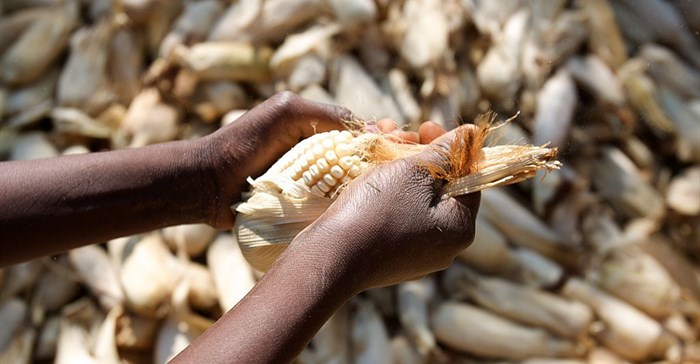
This is not the case for most of its neighbouring countries such as Zimbabwe, Botswana, Malawi, Mozambique, Lesotho and Swaziland, among others, that rely heavily on imported food products. The underlying factor that causes the stark difference comes down to agricultural productivity and investment levels in the sector. South Africa is in a more fortunate position with higher levels of investment that enable access to better farming technologies (biotechnology and mechanical technology) and favourable trade policy, which ensures market access and encourages farmers to produce continuously. Hence, it is not surprising that South Africa’s agricultural output has more than doubled in real terms since 1994.
The gains of the higher agricultural production have also been illustrated in food security levels in South Africa. As a reminder, food security is achieved when three objectives are met: (1) food is available; (2) food is accessible, and (3) food quality ensures appropriate nutritional uptake for all citizens at all times.
In 2019, South Africa ranked as the 48th most food-secure country out of 113 countries measured in The Economist Global Food Security Index; a few inches from the previous year. As I have mentioned elsewhere, this was relatively good, compared to the other BRICS countries – Brazil, Russia, India and China. For example, although South Africa’ average income – as ranked in gross national income per capita of 2018 – was 25 spots behind Russia, 23 behind China and 19 behind Brazil, the country’s food security status was quite comparable to the other BRICS countries.
In the Food Security Index, South Africa has ranked 13 spots behind China, nine places behind Brazil, six spots behind Russia, and 24 spots ahead of India. The gains are primarily enabled by the productivity gains in agriculture, which ensured that South Africa could supply food at a reasonably lower cost.
Nevertheless, there are pockets of food insecurity within South Africa when one considers a household-level perspective. Food insecurity speaks to the country’s general inequality, where some households are food secure, and over 6 million South Africans of low-income households are not, primarily due to affordability. This scenario is more prevalent in Limpopo, KwaZulu-Natal and the Eastern Cape.
The Covid-19 regulations, which limited mobility and resulted in the closure of businesses exacerbated food insecurity in the various communities. Food insecurity increased despite the government’s effort to issue food vouchers and various social grant support systems.
The challenge is not that South Africa’s food prices are rising faster; instead, most people are out of work with no buying power. After all, food price inflation in South Africa averaged 4,8% year-on-year in 2020, up from 3,1% year-on-year in 2019. These are relatively comfortable levels compared with the drought-related surge of 2016, where South Africa’s food price inflation averaged 10,8% year-on-year.
The increased hunger in 2020 suggests that South Africa’s food security standing deteriorated in 2020. We will know for sure when the data is out later in the year. Suffice to say; Covid-19 is probably one of the top risks to South Africa’s food security.
Another factor that presents risks is climate change, which brings unpredictable weather conditions during droughts and floods. At the start of 2021, the Southern African region experienced Cyclone Eloise, which devasted Mozambique, Zimbabwe, Malawi, and northeastern parts of South Africa. The full impact of Cyclone Eloise on Southern Africa’s food security is yet to unfold, but the evidence we have thus far suggests that it will be notable.
Another long-term risk, which is more specific to South Africa, is the approach to land reform. The continuous discussion about the possible expropriation without compensation as one of the broader land reform policies does not bode well for investment. Thus, South Africa’s decisions on this policy suggestion could have implications for food security. The best approach would be to explore other avenues of driving land reform aside from the expropriation route. Such options are highlighted in the report of the Presidential Advisory Panel on Land Reform and Agriculture.
In the recent past, South Africa has also suffered increased crime in its rural areas. If not curtailed, the rise in crime could prove to be a challenge in the long run for South Africa’s agricultural production.
Notably, South Africa’s agricultural sector is export-orientated. Therefore, any potential further increases in output, especially as part of further expansion in area plantings, should be accompanied by increased market access to new export markets. Increased trade incentivizes farmers to remain on the land, thereby producing affordable products both for the local and global market. The rising protectionism in the world could represent a risk for export-orientated countries such as South Africa.
In sum, South Africa is a food secure country at national levels. Still, the household level is food insecure, and the numbers increase because of the pandemic’s economic shock. There are risks to the country’s food security, which policymakers, farmers and agribusiness will need to monitor closely. Climate change, suggestions of widespread expropriation without compensation, increasing rural crime and rising protectionism are critical risks that need closer attention to maintain a food secure country.
This article was first published on newsi.co.za
Source: Agbiz